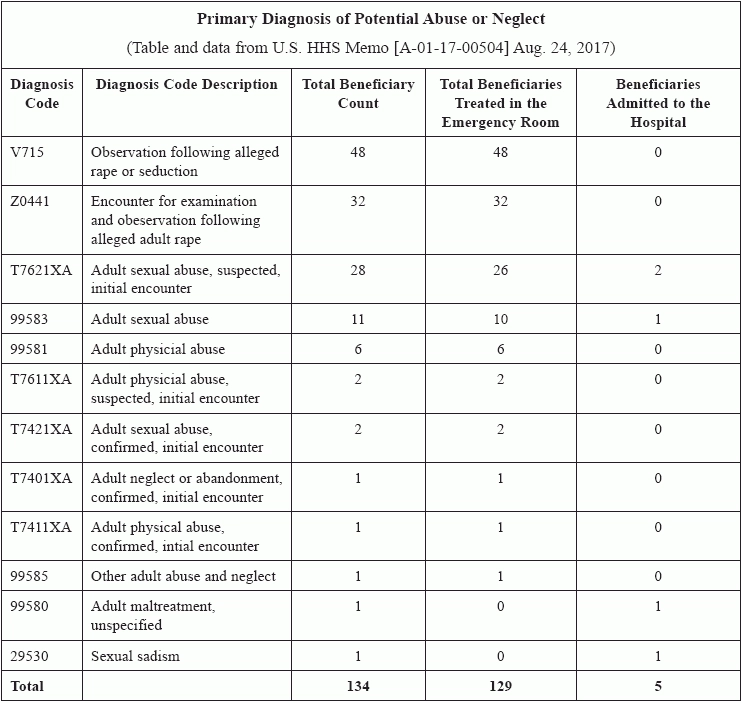Don't Choose Facility Loyalty Over Resident Rights
If you encounter resident abuse, contact law enforcement immediately or risk steep fines. Don’t risk major fines or significant damage to your facility’s reputation by neglecting to inform law enforcement of any suspected or confirmed abuse. The U.S. Department of Health and Human Services Inspector General sent out a memorandum on Aug. 24, 2017, with the department’s preliminary findings from a study about how and when SNF abuse is identified and reported. The study was conducted by requesting the 2015-2016 emergency room records from Medicare beneficiaries that involved 12 diagnosis codes (see table below) which specifically correlate with symptoms of abuse or neglect. Of the 134 cases coded with those diagnoses, “96 of the 134 (72 percent) incidents were reported to local law enforcement,” says Daniel R. Levinson, inspector general for the U.S. Department of Health and Human services. “However, we found no evidence in the hospital records that the remaining 38 incidents (28 percent) were reported to local law enforcement despite State mandatory reporting laws requiring the hospitals’ medical staff to do so.” Primary Diagnosis of Potential Abuse or Neglect (Table and data from U.S. HHS Memo [A-01-17-00504] Aug. 24, 2017) Risk of significant fines The Social Security Administration has rules in effect to protect residents from crimes in federally funded long-term care facilities. These rules stipulate that any crime that results in serious body injury should be reported to law enforcement within two hours, and failure to do so risks a fine of $200,000. Failure to report a crime that could put the victim or others at further risk of abuse within a two-hour timeframe puts one at risk for a $300,000 fine. Respond quickly If you see evidence of abuse, act quickly. First ensure the immediate safety of the resident and any appropriate medical care. If the abuse appears to be sexual in nature, do not clean up the resident before transporting to a hospital, as you may be eliminating potential evidence. Contact local law enforcement as soon as the resident’s safety is secured, and let law enforcement respond as they see fit. Levinson’s memo mentions one SNF staff member who encountered the explicit sexual abuse of a resident by another resident and called law enforcement to report the incident but told them not to bother making a site visit. Find out more about what you can expect, what signs of abuse to look for, and how CMS may respond, here: https://oig.hhs.gov/oas/reports/region1/11700504.pdf

